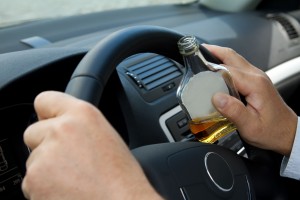
Minnesota will reduce their aggravated DWI legal limit from 0.20 to 0.16, assuming the proposal is signed by Governor Mark Dayton.
The proposal, put forward by the Minnesota legislature, means more Minnesotans would likely face a gross misdemeanor instead of a misdemeanor offense in the wake of a DUI arrest. As you may be aware, Minnesota currently has three specific factors that can enhance a DUI from a misdemeanor to a gross misdemeanor. Those factors are:
- A previous DUI within the last 10 years.
- Being arrested for DUI with a child under the age of 16 in the vehicle at the time of arrest.
- Having a BAC of 0.20 or greater at the time or within two hours of the DUI arrest.
The new proposal targets the third factor, as the Minnesota legislature wants to lower the aggravating factor to twice the 0.08 legal driving limit.
Gross Misdemeanor
As you may have guessed, there’s a pretty big difference between a misdemeanor DUI and a gross misdemeanor. A misdemeanor DUI means a person could face up to 90 days in jail and a fine up to $1,000, while a gross misdemeanor means a person:
- Must serve a minimum of 30 days of incarceration, at least 48 hours of which must be served in a local correctional facility; or
- 8 hours of community work service for each day less than 30 days that the person is ordered to serve in a local correctional facility.
But that’s not all, as those are just the mandatory minimums. A gross misdemeanor carries the potential of up to one year in jail and fines up to $3,000.
So the next question is, “how many people will this effect?” Although we don’t know the exact number of people who were arrested for drunk driving with a BAC above 0.16 but below 0.20, findings from the Minnesota Department of Public Safety show that in 2013, the average BAC for a first time DUI offender was 0.148. This isn’t above the new proposal, but since that’s an average, it’s likely that Minnesota will see a big spike in the number of first time offenders facing a gross misdemeanor charge in the wake of a DUI arrest.
Assuming the proposal is signed by Governor Mark Dayton, the new law will go into effect on August 1.





